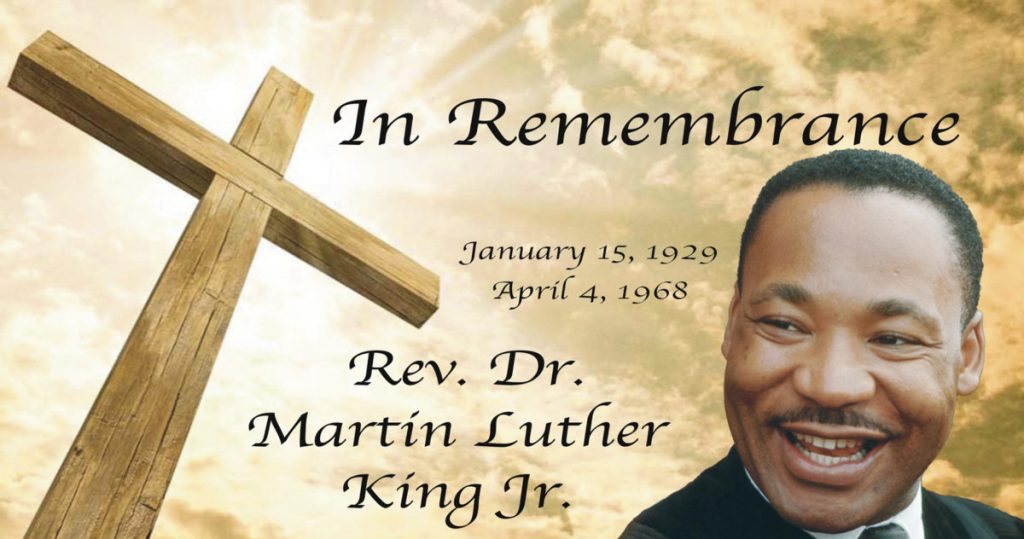By Lynn Norment
NASHVILLE, TN — This year, April 4 is significant on two levels.
It is Easter, the day that Christ rose from the tomb after being crucified so we human beings can be forgiven for our sins and have everlasting life.
April 4 is also the 53rd anniversary of the day that Dr. Martin Luther King Jr. was assassinated.
In the African American community, each of these transitions is memorialized in a special way. This year, thoughts and hearts undoubtedly will focus on two men whose missions, accomplishments and short time on earth continue to greatly influence our lives.
This by no means is a comparison of Dr. King to Jesus Christ. There is no comparison. Yet, the fact that the anniversary of Dr. King’s death falls on Easter, the day that Christ arose from the dead, is certainly reason for deep thought and reflection.
In the year 1968, April 4 was 10 days before Easter, but it is a date forever etched in my mind, and that of others around the world. I was home in Bolivar, a small Tennessee town 70 miles east Memphis. It was early evening when news to Dr. King’s assassination echoed through the house.
Shocked and saddened, my family quietly gathered around the television set. I was fearful and tearful, wondering what was going to happen next. President John F. Kennedy in 1963 had been killed in Dallas, and Malcolm X had been assassinated in New York three years earlier.
Through television and the daily newspaper out of Memphis, I knew that Dr. King had been in Memphis to support the Memphis Sanitation Workers Strike. That February, Black sanitation workers had walked off the job because two of them had been crushed to death in a garbage compacting truck. There was already unrest and tension because the Black workers were paid poorly and treated even worse. They deserved a raise and better working conditions.
On March 28, Dr. King participated in a huge Memphis march, but to his dismay, it ended in violence. With the intention of leading a peaceful march later that week, Dr. King returned to Memphis on April 3. That evening, he spoke at Mason Temple, then the Church of God in Christ world headquarters.
As Dr. King came to the end of his “I’ve Been to the Mountaintop” speech, he talked about his 1958 attempted assassination, the bomb threat that delayed his plane that day, and threats made against him in Memphis.
“We’ve got some difficult days ahead,” he told the packed rally as a storm raged outside. “. . . Longevity has its place. But I’m not concerned about that now. I just want to do God’s will. And He’s allowed me to go up to the mountain. And I’ve looked over. And I’ve seen the promised land.
“I may not get there with you. But I want you to know tonight, that we, as a people, will get to the promised land! And so I’m happy, tonight. I’m not worried about anything. I’m not fearing any man. My eyes have seen the glory of the coming of the Lord!”
It was a powerful speech, one of Dr. King’s most remembered.
The next day, Thursday, April 4, 1968, Dr. King was at the Lorraine Motel with aides and friends; Rev. Billie Kyles of Memphis arrived to take the group to dinner. At about 6 p.m. Dr. King stood with Rev. Kyles on the balcony outside his Room 306, and told musician Ben Branch to be sure to play “Take My Hand, Precious Lord” at the rally that evening.
Then, as Dr. King leaned over the balcony railing to speak with Reverend Jesse Jackson, he was hit in the face by a single rifle shot fired from a boarding house across the street. He fell back onto the balcony, unconscious. At St. Joseph’s Hospital, Dr. King was pronounced dead at 7:05 p.m.
Dr. King’s assassination was a tragedy that impacted our home in Bolivar but also people around the world. The respected Civil Rights leader who advocated for non-violent protest, the 1964 Nobel Peace Prize laureate, the man who dedicated his life to fighting for justice and equality, was dead. The leader who organized the 1955 Montgomery Bus Boycott and went on to lead the massive 1963 March on Washington was killed by an assassin’s bullet triggered by racism.
The fact that the anniversary of Dr. King’s death falls on the day that we celebrate Christ rising from the tomb gives us a lot for reflection this Easter. It is easy to imagine what Jesus would think of Dr. King’s assassination and the racist social climate that led to it.



